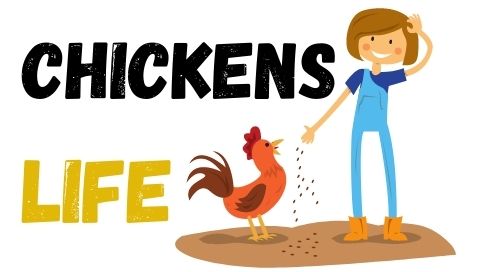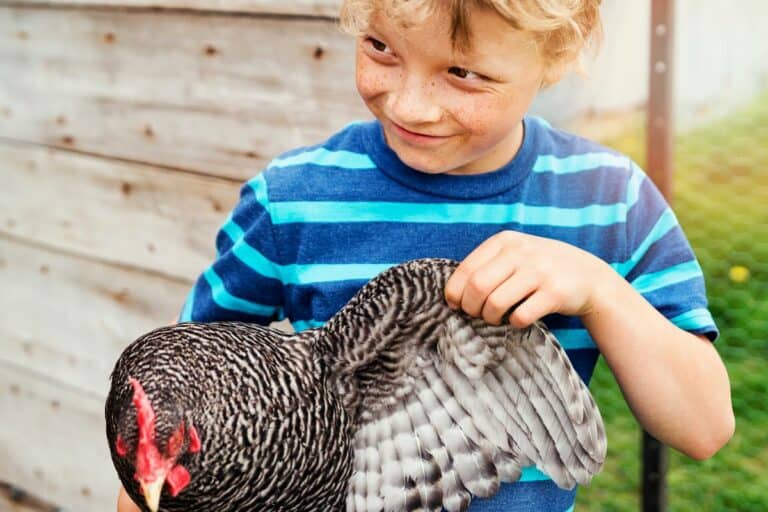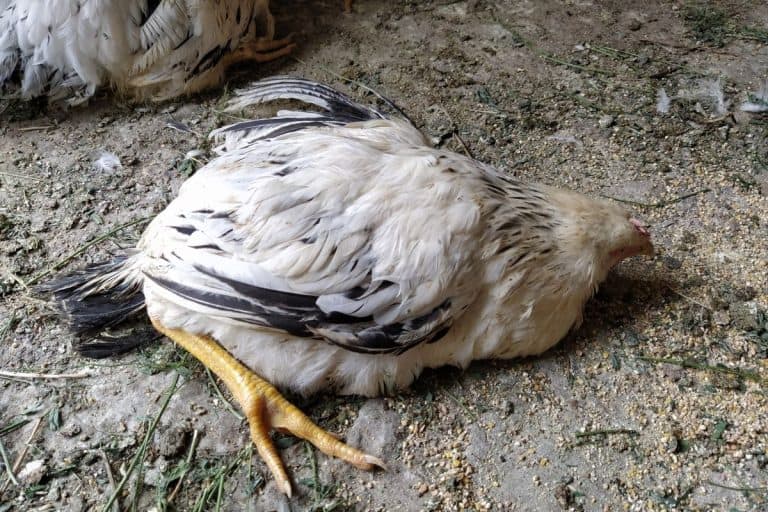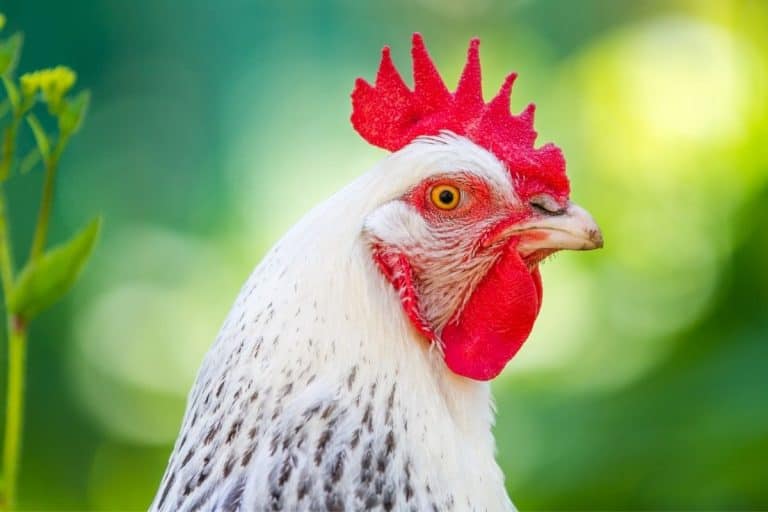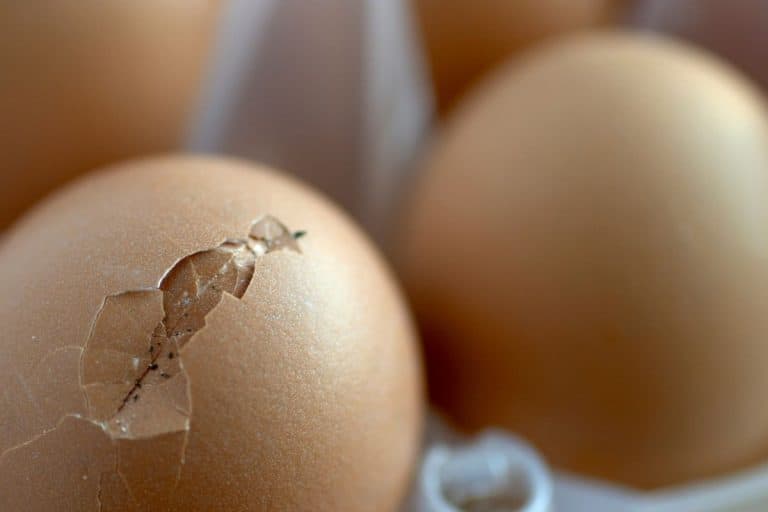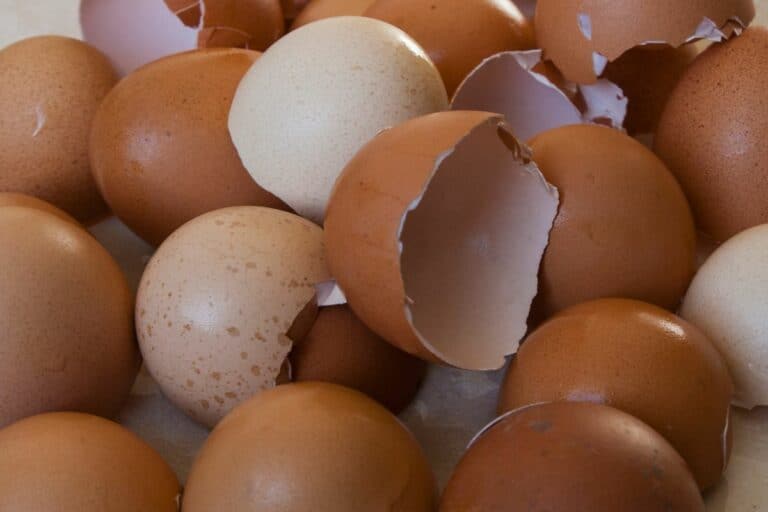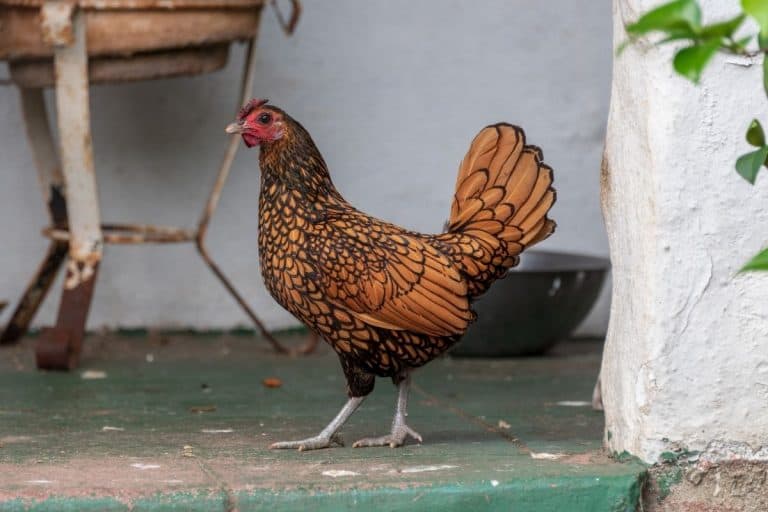7 Differences Between Chickens And Ducks
Raising chickens and ducks can be rewarding as both species can contribute to your flock and homestead fairly well. If you’ve been an avid chicken farmer for a while and are interested in introducing some ducks into your flock, you are probably wondering what the differences between the two are before you begin your endeavor.
The main difference between chickens and ducks is that ducks are water birds with flat, paddle-like feet and chickens are land-dwelling scratching poultry.
While both of these feathered fowl are egg-layers that provide eggs and meat for sustainability, they are certainly not the same. Understanding how these two birds vary is crucial before making the leap of bringing ducks into the fray. So to help I’ve provided the main differences between chickens and ducks.
Hey chicken buddies: Quick heads-up before going further! I've put together a list of stuff I use and love for my flock. If you're curious about what keeps my hens happy, click here to find out.
Chicken And Duck Physiology
One of the first places to start when it comes to chicken and duck differentiation is their base instincts of land vs water. Chickens cannot really swim. Well, they can float until their feathers become water-logged, and then they will sink like a rock. Ducks, on the other hand, are built for water and can float, swim and dive without the risk of drowning.

Chickens are classified as a scratching bird because their feet are clawed with three sharp toes, and they are not built for flight. However, they can glide and fly very short distances. Ducks have feet that are flat and webbed, which make excellent tools for swimming around. They also have the ability to fly most distances.
Ducks have an oily substance (almost like a wax) that they secrete and rub onto their feathers, keeping them waterproof. While chickens also have an oil or preening gland, this substance does not keep their feathers waterproof to the degree that ducks do.
The average lifespan for chickens is between 7-8 years where ducks can live for 8-10+ years. A duck can grow to be about 20-24 inches in length and be around 1.6-3.5 lbs. A chicken is typically around 2ft tall and about 5 lbs.
Wait, I have some recommendations for you!
Before you go any further, I want you to take a look at some of the recommendations I've handpicked for you. I think these are essential items you should have for your chickens flock. You can check them out and buy them directly from Amazon.
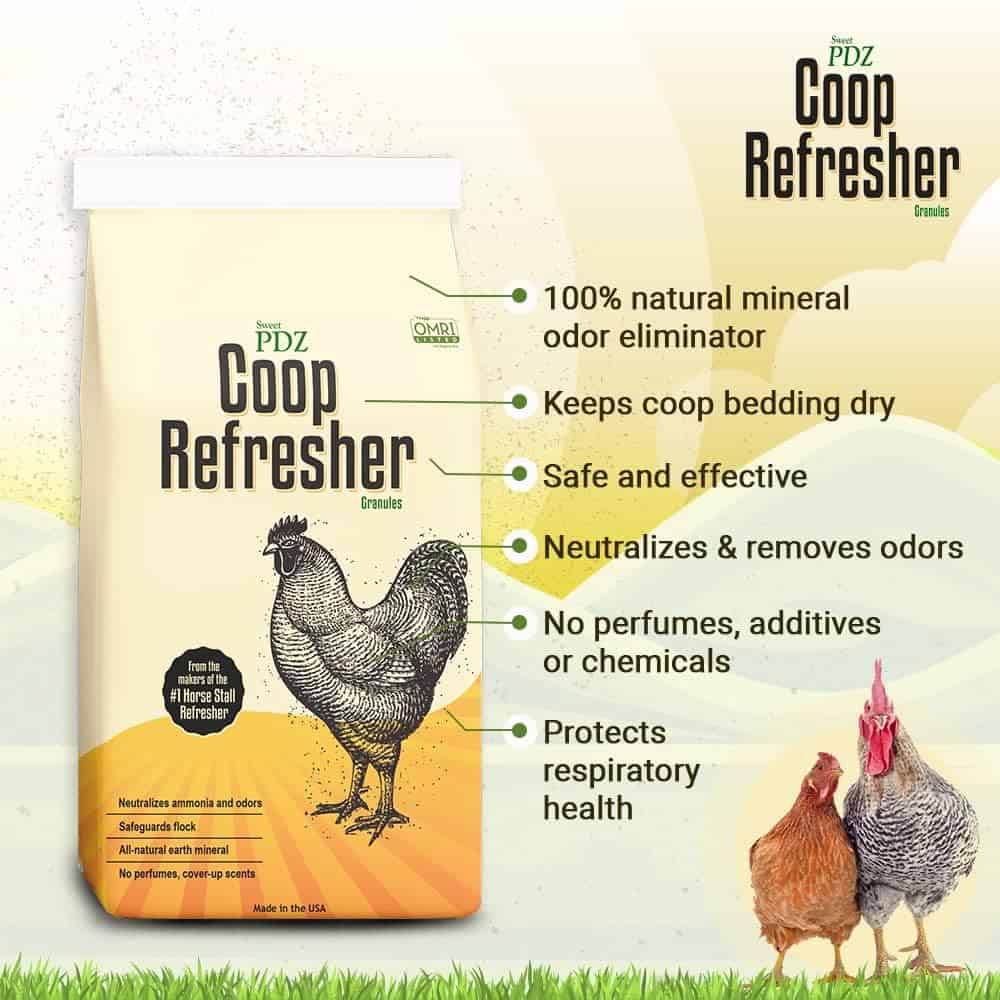 |  | 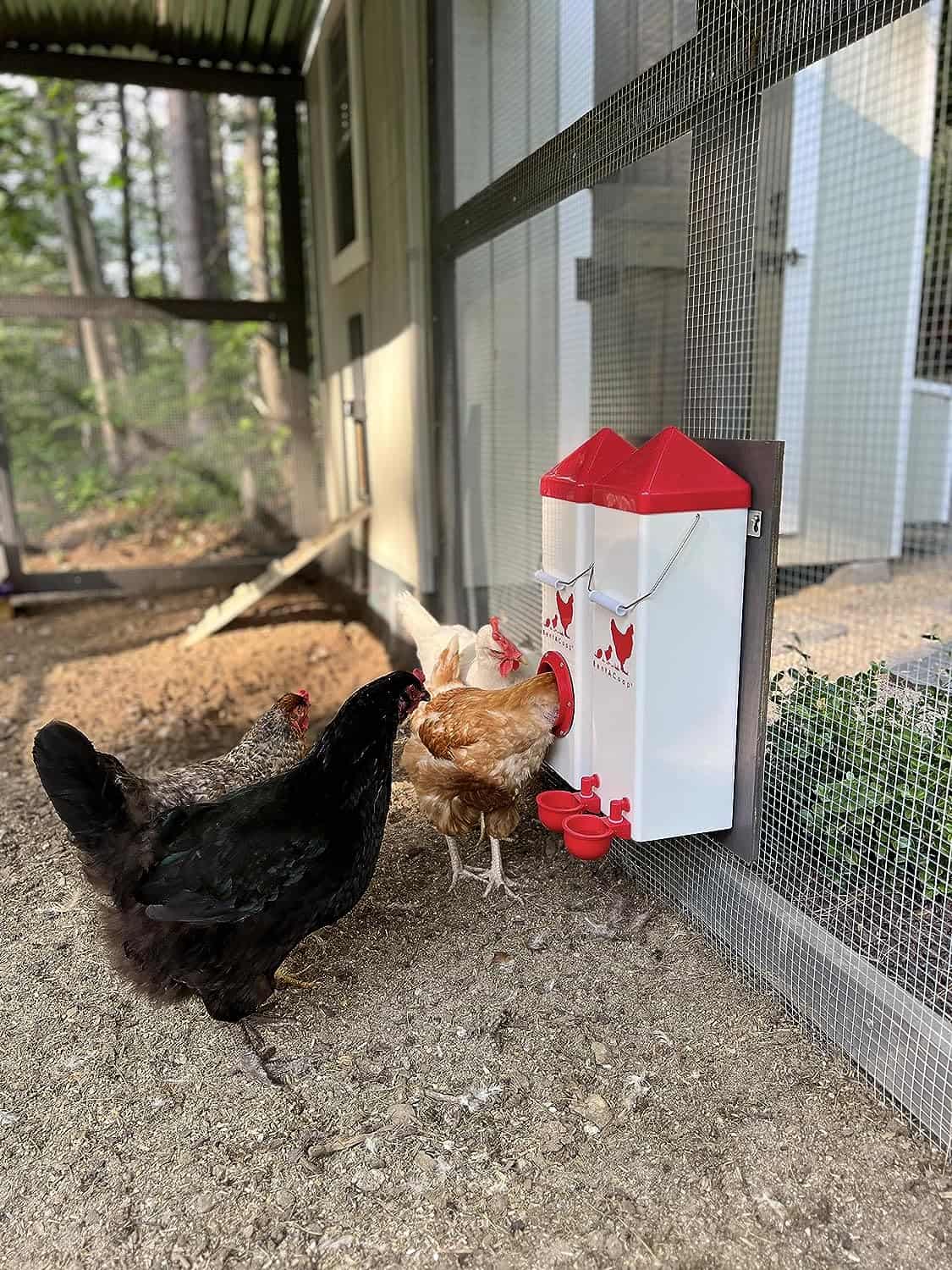 |  |
| Essential accessory for your coop | No more tripping over hoses! | Predator protection made easy | Comfort + style is possible |
Water: Ducks Need More Of It!
It’s really no surprise that between the two, ducks need to have a source of bathing water somewhere for them to access daily. It’s important for their feathers to keep them coated and waterproof, which is how they are so hardy during the winter months.
This water necessity can make it difficult to raise ducks in confined situations, but as long as you provide a pool or small pond for them to swim and wade around in, they should be happy. Just don’t forget to change the water in a little pool to avoid disease and other unsanitary issues.
Not only do they need to have water for bathing and swimming but they also tend to ingest more water than chickens. Therefore, you will need to be more attentive to the ducks’ water source and can expect more liquidy poops.
Chicken Vs Duck Diets
Chickens and ducks can eat the same commercial feed diet and will spend a similar amount of time foraging for pests and cleaning up the yard. Ducks will even ingest bugs and other insects that they find in any ponds or body of water.
Ducks will typically look for and eat bigger pests that chickens won’t go for, making them both an excellent and dynamic team of bug-controlling birds.

Health And Hardiness: Differences between ducks and chickens
Ducks have a tendency to be healthier and avoid more common diseases and illnesses than chickens.
Right from birth, ducks are also a hardier species, already having warm down feathers and a healthy layer of subcutaneous fat to protect them and keep them warm. Where chickens are usually at high risk of hypothermia and death those first few weeks of life (more details about this here).
Ducklings can even go outside in colder temperatures by the time they are 3 weeks old when chicks must stay under the protection of a brooder for at least 6 weeks before venturing outdoors.
Egg Production: You’re Going To Be Surprised
Many of us will probably assume that chickens are the superior egg-layer out of the two. The truth is actually a little surprising. Ducks are excellent at producing high numbers of eggs on a regular basis, laying close to one (and sometimes even 2!) eggs every 24 hours. Chickens can accomplish egg-laying at a similar rate but tend to be just a little slower, closer to an egg every 26-30 hours.
Another interesting fact is that ducks will lay eggs for several years longer than chickens. The ripe egg-laying age is between 6 and 9 years for ducks, where most chickens have massively slowed down their egg production by the time they are 4 years old.
Duck eggs are also larger than chicken eggs and are typically brown or cream color, with a larger yolk to white ratio, making them excellent for creating delicious and fluffy baked goods!

Just like in chickens, different breeds of ducks will produce different quantities of eggs.
Both Feathered Fowl With Different Meat
The meat from a duck and a chicken are not quite the same and can have very different flavors. Both can be raised for the sole purpose of meat production and are equally healthy for you.
A duck’s meat is darker because they are flying birds and more hemoglobin goes to the muscles that are used for flying, such as the breast and wing meat. Chickens, as we know, don’t really fly, therefore their breast meat is lean and white, while their thigh meat is dark because they exclusively walk and run around.
Even with all of their differences, the process of butchering chickens and ducks for meat is almost identical. Some people think that ducks are a little harder to de-feather than chickens.
Housing And Ideal Climate
Ducks are quite content with nesting on the ground and typically prefer it. Whereas, chickens enjoy gaining a little height and roosting. This makes it somewhat easy to house both ducks and chickens in one coop, as long as everyone has enough room for nesting and laying eggs.
Chickens are not as well suited for cold weather as ducks are. The waterproof waxy substance that goes on the ducks’ feathers is excellent at also retaining warmth and keeping ducks from getting too cold during the winter. Chickens don’t enjoy the cold as much and will often spend more time in their coop when it is chilly, rainy or winter.
Bonus: Chickens Are A Little Noisier
Chickens are much louder than ducks. Chickens tend to do a lot of verbal communication with each other and their surroundings, clucking and crowing throughout the day as they find a tasty snack or look for their favorite friend. Ducks are much quieter than chickens and will usually only make a lot of noise when there’s a reason for it.
Let’s remember that if you have a rooster, you are going to be hearing a lot more noise than if you only had a flock of hens.
Chickens VS Ducks: A Quick Summarization
There’s a lot to take in when it comes to the differences between these two feathered friends. Here’s a quick table for easy reference.
| Chickens | Ducks | |
| Size (height and weight) | 2-2.3 ft / 5-6 lbs | 1.8-2 ft / 1.6-3 lbs |
| Housing/environment | Coop/roosting bars | Water/nesting on the ground |
| Egg production | 5-6 eggs per week | 7 eggs per week |
| Meat | Leaner, white meat | Darker meat |
| Health | Prone to more disease/illness | More hardy and resilient |
| Convenience | Slightly more work | Easier to raise and quieter |
Conclusion: Should You Raise Ducks, Chickens Or Both?
Ultimately, both species of bird are quite excellent to have on your farm or homestead. Ducks and chickens are great at producing eggs, have abundant meat, and are relatively hardy. You can expect to have tons of eggs and a vibrant and unique flock when you have both ducks and chickens running around your property.

